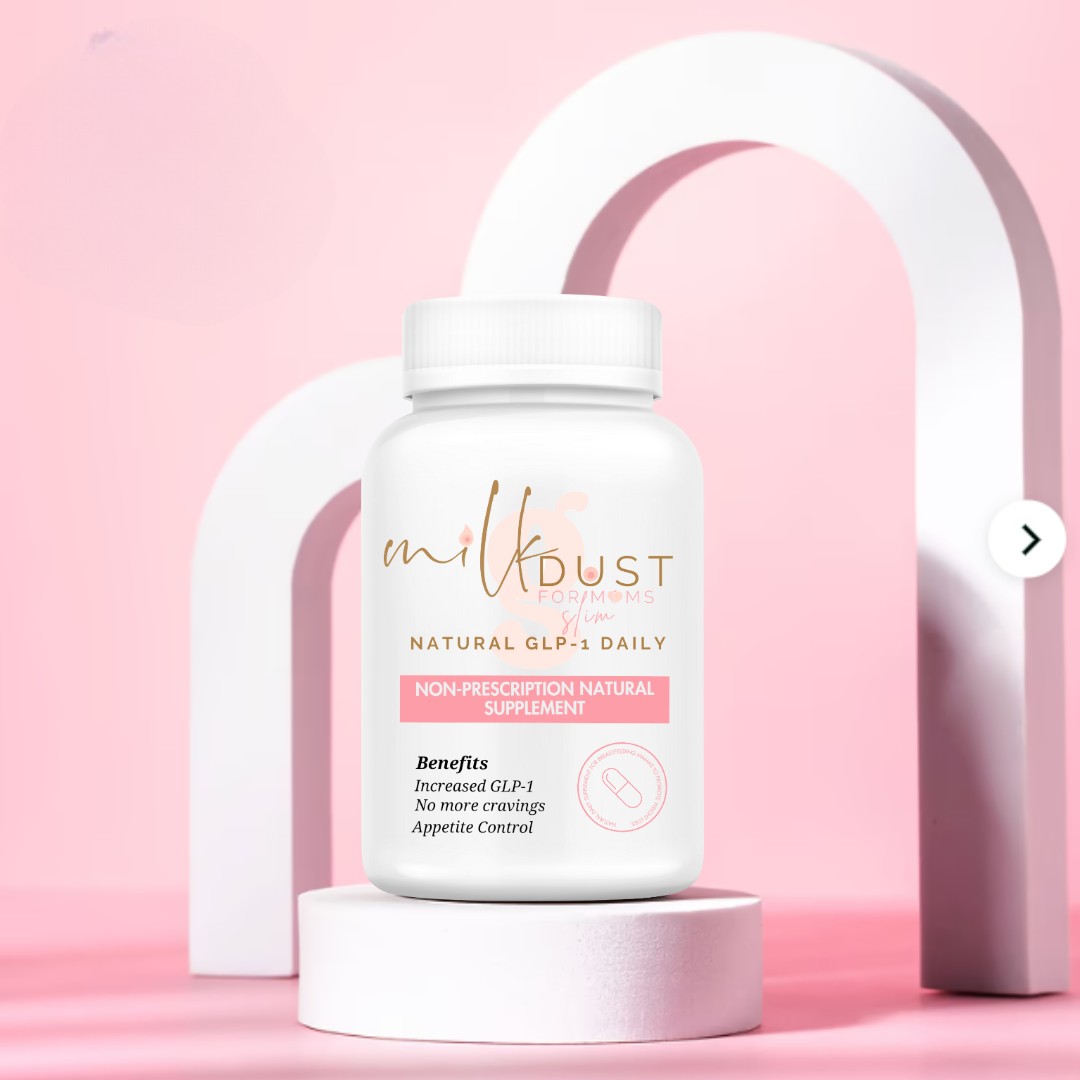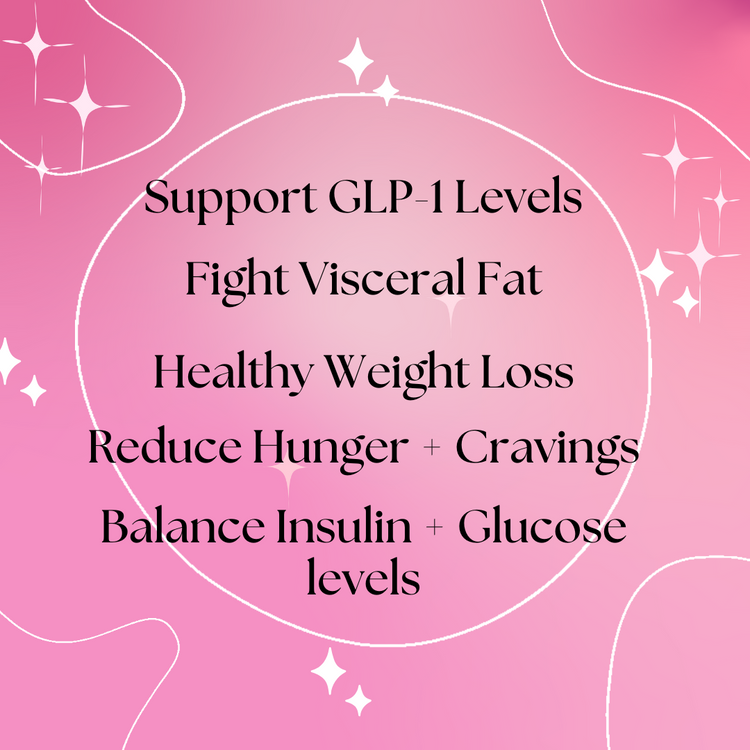I love a good lactation protein powder, and as a mom of four boys, I've used lactation protein powders over the years to help me increase my milk supply, get in shape, nourish my body and lose the baby weight. I have tried so many protein powders, and I even created my own protein powder because there wasn't a protein powder on the market that actually stops sugar cravings, boosts milk supply, increases energy, and helps with weight loss. I created Milk Dust lactation protein powder because I wanted a plant-based, high-quailty, super clean protein powder that had all the foods I was was trying eat every day. It was so hard to eat all the chia seeds, pumpkin seeds, oatmeal and protein, so I found that a delicious protein shake was so much easier to blend up and drink, and feel super full.
When you do a sear for lactation protein powders, there are a few great brands on the market. Majka is one of them, but has announced they are going out of business. I've used Majka and looked into their formula, and if you are a loyal Majka nourishing lactation protein powder fan, I highly encourage you to try Milk Dust. Milk Dust has a very similar, yet very unique formula, an amazing taste and texture, and specific nutrients to stop sugar cravings and hunger while breastfeeding.
To help you know if Milk Dust is a good fit for you, I am going to go over everything from an expert persepctive. As a mom, nutrition expert and certified fitness specialist, I want to give you the full picture of both products, so you can see if Milk Dust is the right alternative for you.
Majka Protein Powder Vs Milk Dust Lactation Protein Powder - What's The Difference?
Majka and Milk Dust are both formulated to nourish breastfeeding mamas as the foundation. Both powders focus on high-quailty nutrients, specific grams of protein per serving, plant-based ingredients and more. There are some differences I want to point out as well, so you can understand how you may be nourishing your body and milk supply differently, if you've been using Majka.
Similarities in Majka and Milk Dust Breastfeeding Protein Powder:
- Both are plant-based proteins
- Both have organic ingredients
- Non-GMO superfoods
- Soy-free, Dairy-free, Vegan
Majka and Milk Dust have very different lactation blends. Milk Dust offers a patent-pending lactation blend based on science and backed by professionals. Majka also offers specific ingredients used for centuries to support lactation.
Milk Dust Lactation Blend:
The Milk Dust lactation blend consists of:
- Milk Thistle
- Organic Red Raspberry Leaf
- Brewer's Yeast
- Fenugreek Seed
- Fennel Seed.
These ingredients have been shown through scientific studies to increase milk supply. Fenugreek is in fact one of the most popular and potent lactation boosters used for centuries. It can also have a negative affect in some, because it is so potent, so Milk Dust also offers a similar, Fenugreek-free formula for those that may have issues. The Milk Dust lactation blend focuses specifically on hormonal function, which is the root of lactation. The lactation blend is also supported by a protein blend that is plant-based and supports milk supply too. The Milk Dust protein blend consists of pea protein, organic brown rice protein, chia seeds, flax seeds and pumpkin seeds. The hand-picked proteins are part of the lactation team that make the lactation blend more powerful. This adds an additional 5 ingredients that support lactation.
Majka Lactation Blend:
The Majka lactation blend consists of a very different ingredients. The Majka blend focuses more on seeds and warm herbs. The only ingredient scientifically shown to possibly increase milk supply is Shavatari Root (which Milk Dust has in its Fenugreek-Free Formula!)
- Organic Flax Seed, Organic
- Turmeric Root Powder
- Organic Ginger Root Powder
- Organic Caraway Seed
- Organic Clove
- Organic Shatavari Root Powder
- Organic Sweet Potato Root Powder
Majka has just a couple more ingredients for their lactation blend, while they offer a very similar protein blend. The Majka protein blend consists of pea protein, brown rice protein and chia seed protein, which is similar to Milk Dusts.
Milk Dust offers Spirulina and Chlorella:
Milk Dust provides a high does of spirulina and chlorella, which are absolutely amazing superfoods. Spirulina is a fresh-water blue-green alga that contains various nutrients such as protein, B vitamins, vitamin E, chlorophyll, beta-carotene, and iron.
Chlorella has been shown to "not only reduces dioxin levels in breast milk, but may also have beneficial effects on nursing infants by increasing IgA levels in breast milk," acoording to this recent study. Chlorella is a fresh-water green alga that contains various nutrients such as carotenes, protein, fiber, vitamins, minerals and chlorophyll.
Both of these are aboslutely amazing, nutrition powerhouses, and Milk Dust combines these with spinach, raspberries and blueberries to get some serious antioxidants, vitamins and minerals into the powder.
This antiozidant blend is mainly why Milk Dust is always a dark green color (means the phytonutrients are real!), and theses are amazing for ensuring breast milk is detoxified and baby is protected!
This is unique to any other lactation powder on the market, and partly why the formula is patent-pending.
Majka Provides a Polyphenol Blend:
Majka has a blend different than Milk Dust's that consists of Organic Apple, Organic Stawberry, Organic Bluberry, Organic Raspberry, Organic Sour Cherry, Organic European elderberry, Organic Cranberry. This is their blend for antioxidants and phytonutrients. All of these foods are super foods, but can also be blended with a smoothie. Milk Dust specifically offers chlorella and spirulina, so other fresh fruits and vegetables can be blended into a rich and delicious smoothie. Majka is offering them as a part of their powder instead, so you can omit additional fruits and veggies and still get them in your shake.
Milk Dust Sugar Craving Blend:
Milk Dust offers a unique, propietary sugar-craving blend that targets sugar cravings in breastfeeding mothers. This is why Milk Dust is the top choice for anyone wanting to get back in shape after pregnancy. The sugar-craving blend consists of cinnamon bark, turmeric, magnesium, zinc, L-methylfolate, Chromium and Vitamin B12. The B vitamins are all active, or methylated for better absorption. All of these ingredients have been used in studies to help treat blood sugar issues and diabetes, due to their ability to help balance blood sugar and reduce cravings. Specifically chromium and magnesium work together to help ensure those cravings are greatly reduced. No other lactation protein powder offers a blend like this.
Grab the FREE Milk Dust Lactation Smoothie Recipe Book (for amazing milk supply and weight loss!!)
Majka offers a Digestive Enzyme Blend:
Majka offers a digestive blend to help digest the powder. Many new moms take digestive enzymes and probiotics to help keep their gut healthy, and this offers a good amount of those for you. What is hard is that many people need different bacteria strains and enzymes for their specific gut microbia, making it hard to generalize. It also adds a higher cost, when your body most-likely absorbs the shake easier because it is in a shake form. With the vitamins already in methylated forms, the body can absorb them much easier, and may not need enzymes and probiotics. Also, for some that suffer from gas and bloating, adding the wrong probiotics can make things worse.
Milk Dust offers 22 Servings for $49.39 (if you subscribe!) // Majka was 15 Servings for $69:
Milk Dust provides 16 grams of protein and 100 calories in one scoop, with 22 servings in a container.
Majka offers 15 grams of protein and 100 calories in 2 scoops, with 15 servings per container.
For some, the price does make a difference, and you do get more servings in a Milk Dust jar.
Taste is something that is very individual, but if you are wanting to try Milk Dust, we have both sweet vanilla and fudge brownie sample packs to get you started. It is a great way to see if you like the protein powder, and if it is a good fit for you!
The Importance of Protein for Postnatal Nutrition and Milk Supply:
Both Majka and Milk Dust focus on nourishing mamas postpartum specifically with protein. A protein powder is a great tool for achieving proper nutrition postpartum, and I highly recommend protein powders for a breastfeeding mama because it is such a simple way to get in essential protein that really impacts milk supply. Milk Dust is crafted by a brilliant team of professionals, and Milk Dust stands out as the best breastfeeding supplement, designed meticulously to cater to the nutritional needs of new moms. Packed with grams of organic protein, essential nutrients, and active forms of B vitamins, it not only supports milk production but also enhances overall health. Its unique inclusion of digestive enzymes and organic galactagogues aids in boosting milk supply and ensures nutrient absorption, making it a safe protein powder that aligns perfectly with a breastfeeding mom's dietary requirements.
Whether you chose Milk Dust, or another one of the high-quality, safe protein powders, it is really important to get in enough protein every day to support your body and lactation. Protein plays a major role in stopping sugar cravings, regulating metabolism,
Protein intake during lactation is essential for supporting maternal health and milk production, as well as providing key nutrients for infants' growth and immune development. Here are some findings from studies on protein for lactation:
Protein Needs in Lactation:
- Studies suggest that lactating women need significantly more protein than non-lactating women to meet the demands of milk production. Recommended dietary allowances (RDAs) range from 1.2 to 1.3 grams of protein per kilogram of body weight for lactating women, compared to 0.8 grams for non-lactating adults. These recommendations can vary based on maternal body weight, physical activity, and milk production levels.
- Increased protein supports the synthesis of casein, whey, and other proteins in breast milk that are essential for infant development, such as lactoferrin and immunoglobulins.
I believe that plant-based protein powders are the best for breastfeeding moms because some babies can be really sensitive to whey and dairy products, so to avoid any issues right away, plant-based protein powders tend to be better.
Lactation Support & Boosting Milk Supply with Milk Dust:
Many loyal Milk Dust Mamas see Milk Dust as holy grail for milk supply and weight loss. What sets Milk Dust apart for me, and for so many other breastfeeding mamas, is its expert formulation. It's not just any nutritional supplement; it’s a beacon of support for us, tackling low milk supply with science-backed ingredients. The secret? Organic galactagogues. These aren’t just fancy words tossed around to impress us; they are ingredients like fenugreek and fennel seed, renowned for their lactation support. These components play a pivotal role in not just boosting milk production but ensuring that the milk we produce is nourishing for our little ones. Integrating Milk Dus into my daily routine was an easy way to ensure I was meeting my nutritional needs while giving a much-needed lift to my milk supply. Every scoop of Majka's lactation blend brought me closer to achieving a healthy milk supply, all while keeping me nourished and energized.
THE MILK DUST PROTEIN BLEND IS TAILORED TO BREASTFEEDING MOTHERS:
Each serving of Milk Dust offers 16 grams of protein, and all of this protein comes from natural ingredients. Plant proteins are a safe way to consume extra protein without having to eat a ton of eggs, or even dairy which many people are sensitive to. The best choice when it comes to choosing between safe protein powders. A breasfeeding mom particulalry needs to stick to a breastfeeding protein powder that is free of artificial sweeteners (like Milk Dust), because other protein powders with whey, casein or soy can cause tummy issues in newborns who may have a lactose intolerance. Of all the protein supplements on the market for a breastfeeding mother, Milk Dust has the most comprehensive and diverse vegan protein powder blend. Milk Dust is also tested for heavy metals, and safe for pregnant women (if doctor approved!) These organic ingredients consist of:
Pea Protein Isolate:
Pea protein isolate is a clean protein powder source that offers a complete amino acid profile. Pea protein isolate is particularly beneficial for a breastfeeding mama because it is rich in iron, builds and preserves lean muscle, and helps keep you full! I can't tell you how many breastfeeding mamas struggle with hunger, and pea protein is extremely beneficial for satiation.
Organic Brown Rice Protein:
Brown rice has many benefits for breastfeeding, and it can actually help increase milk supply. According to Babyment, "It is healthy to eat brown rice while you are breastfeeding. First, It has hormone stimulants which boost lactation. That can help increase the secretion of breast milk. Second, brown rice contains chemical that can prevent postnatal depression." The brown rice protein can help you achieve your healthy milk supply, while also helping you get in the proper nutrition.
Organic Pumpkin Seed Protein:
Pumpkin seeds are particularly high in zinc, minerals and good fats that are an amazing superfood for lactation. Pumpkin seeds are also high in fiber and protein, which are a great way to feel full and nourished at the same time.
Organic Chia Seed Protein
Chia seeds are also high in healthy fats, which are important to the quality of your breast milk supply. By offering various seed proteins, there's a wide variety or minerals and healthy fats to increase the nutrient-density of the protein blend. The more nutrients the better for lactation. Chia seeds are iron-rich foods, believed to promote breast milk supply and are also good calcium sources and protein sources along with fats – all of which are essential for breastfeeding mothers.
Organic Flax Seed Protein:
This diverse blend of protein provides as much nutrients as possible, while also helping achieve the daily protein intake goal that is helpful for producing milk, feeling full and also losing the baby weight.










